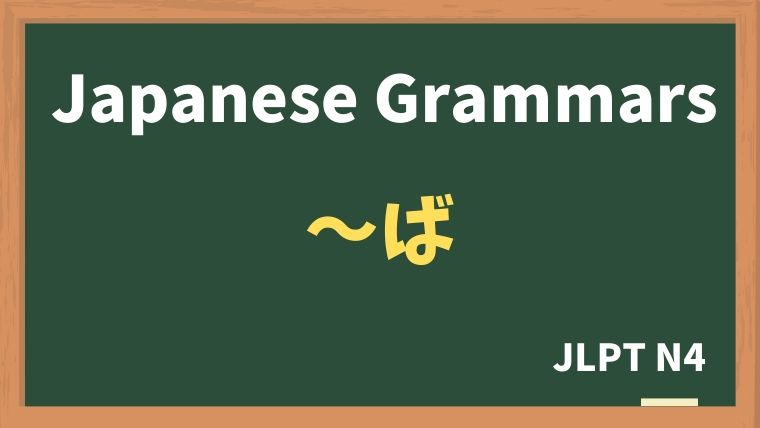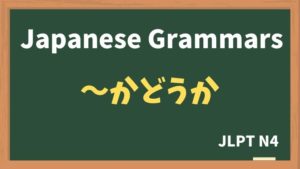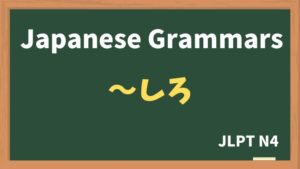
Explanation:〜ば
fa-check-circleMeaning
"if X then Y"
The conditional form "〜ば" expresses a conditional "if" or "when" relationship, similar to the English word "if." This form indicates that if the condition in the first clause is met, the action or situation in the following clause will likely occur.
fa-check-circleForm
V(ba form)
[イA ]
Affirmative:イA + ければ
Negative:イA + なければ
fa-check-circlePoints
- Conditional Clause: "〜ば" sets up a condition that, if met, leads to the result or outcome stated in the following clause.
- Hypothetical Situations: Often used to express hypothetical situations, assumptions, or suggestions.
- Neutral Tone: Compared to other conditionals, "〜ば" generally has a softer, more neutral tone and can sound slightly formal.
fa-check-circleJLPT Level
N4
fa-check-circlePoints
- More Formal than たら: The "〜ば" form is often considered more formal and slightly softer than "〜たら."
- Natural Results: "〜ば" can imply a more predictable or natural result, particularly in more factual or objective statements, while "〜たら" might be used more often in everyday, casual conversations.
- Politeness Level: The use of "〜ば" does not make the sentence more polite, but it is often used in more formal or polite contexts compared to other conditional forms.
Sample sentenes
たくさん 勉強すれば、JLPTに 合格できますよ。
If you study a lot, you can pass the JLPT.
チケットを 買わなければ、飛行機には 乗れません。
If you don't buy a ticket, you can't board the plane.
この バスに 乗れば、駅へ 行けます。
If you take this bus, you can go to the station.
100万円 あれば、色んな 国を 旅行します。
If I had 1 million yen, I would travel to many different countries.
話さなければ、日本語が 上手になりませんよ。
If you don't speak, you won't improve your Japanese.
薬を 飲めば よくなりますよ。
If you take the medicine, you'll feel better.
成績が 悪ければ、大学に 行けません。
If your grades are bad, you won't be able to go to university.
安ければ、買います。
I'll buy it if it's cheap.
どうすれば、日本語が 上手になりますか。
What can I do to become better at Japanese?
パスポートを 落としたんですが、どうすれば いいですか。
I lost my passport. What should I do?
Vocabulary
| Japanese |
English | |
| 成績 | せいせき | grade |






